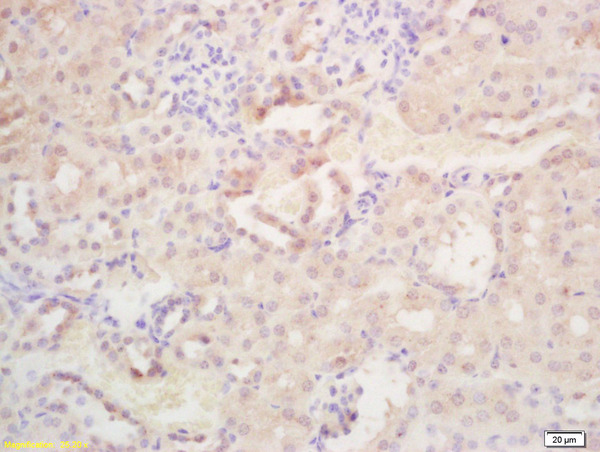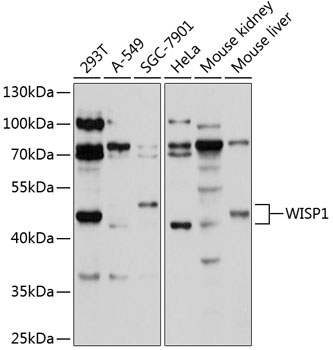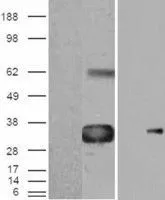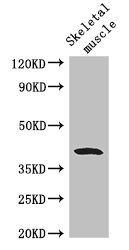anti-CCN4 / WISP1 antibody
ARG42929
ApplicationsWestern Blot, ImmunoCytoChemistry, ImmunoHistoChemistry, ImmunoHistoChemistry Frozen, ImmunoHistoChemistry Paraffin
Product group Antibodies
ReactivityHuman
TargetCCN4
Overview
- SupplierArigo Biolaboratories
- Product Nameanti-CCN4 / WISP1 antibody
- Delivery Days Customer23
- ApplicationsWestern Blot, ImmunoCytoChemistry, ImmunoHistoChemistry, ImmunoHistoChemistry Frozen, ImmunoHistoChemistry Paraffin
- CertificationResearch Use Only
- ClonalityPolyclonal
- Concentration0.5 mg/ml
- ConjugateUnconjugated
- Gene ID8840
- Target nameCCN4
- Target descriptioncellular communication network factor 4
- Target synonymsWISP1, WISP1-OT1, WISP1-UT1, WISP1c, WISP1i, WISP1tc, CCN family member 4, WISP1 3'UTR-associated RNA 1, WISP1 overlapping transcript 1 (non-protein coding), WNT1 induced secreted protein 1, WNT1 inducible signaling pathway protein 1
- HostRabbit
- IsotypeIgG
- Scientific DescriptionThis gene encodes a member of the WNT1 inducible signaling pathway (WISP) protein subfamily, which belongs to the connective tissue growth factor (CTGF) family. WNT1 is a member of a family of cysteine-rich, glycosylated signaling proteins that mediate diverse developmental processes. The CTGF family members are characterized by four conserved cysteine-rich domains: insulin-like growth factor-binding domain, von Willebrand factor type C module, thrombospondin domain and C-terminal cystine knot-like domain. This gene may be downstream in the WNT1 signaling pathway that is relevant to malignant transformation. It is expressed at a high level in fibroblast cells, and overexpressed in colon tumors. The encoded protein binds to decorin and biglycan, two members of a family of small leucine-rich proteoglycans present in the extracellular matrix of connective tissue, and possibly prevents the inhibitory activity of decorin and biglycan in tumor cell proliferation. It also attenuates p53-mediated apoptosis in response to DNA damage through activation of the Akt kinase. It is 83% identical to the mouse protein at the amino acid level. Multiple alternatively spliced transcript variants have been identified. [provided by RefSeq, Mar 2011]
- ReactivityHuman
- Storage Instruction-20°C
- UNSPSC12352203








